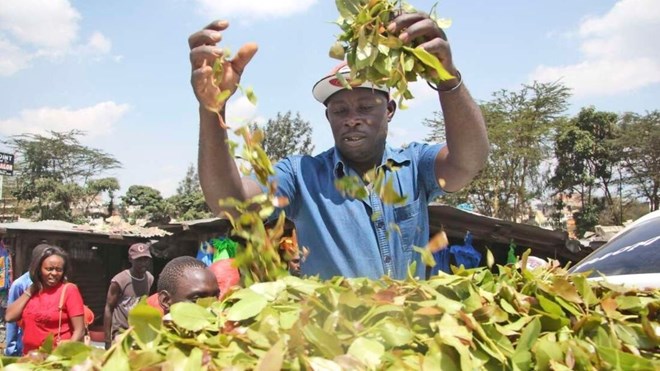
By GERALD ANDAE
Friday August 5, 2022

Even though Somalia has lifted a ban on Kenyan miraa and farmers have already received millions of shillings in under a week since resumption of exports, the latter is not yet out of the woods on this lucrative market.
It has emerged that Somalia has capped Kenya’s miraa to a maximum of 19 tonnes and there are a number of new taxes that have been introduced, which are eroding farmers’ margins.
Farmers are not allowed to export more than 19 tonnes of miraa to Somalia, which is nearly half of the 40 tonnes that the country used to export before the ban was put in place.
Miraa exporters have also been restricted to only exporting the commodity to Mogadishu unlike previously when they would sell to three more cities within the Republic of Somalia.
“Somalia has capped imports to 19 tonnes. We have more miraa than we would have exported to the country at the moment,” said Nyambene Miraa Trade Association (Nyamita) chairman Kimathi Munjuri.
Mr Munjuri said the capping will have a negative impact on farmers as they already have mature crops that may end up missing the market.Head of Miraa Pyrethrum and other Industrial Crops Felix Mutwiri said the government was still engaging with their counterparts in Somalia to address the protocol issues surrounding the exports of the stimulant.
“We are still working on the protocols at the moment and there are things we don’t want to rush now that we have just resumed the market,” said Mr Mutwiri. It is also emerging that flights carrying miraa were given a permit to ferry the twigs for only two weeks, meaning that if it is not extended, then the exports could stall.
Somalia’s aviation authority has not lifted the Notice to the Airmen (Notam) that was put in place in 2019, restricting the export of miraa by air. Mogadishu only issued a temporary waiver to allow cargo flights following talks between President Uhuru Kenyatta and his Somalia counterpart.
Kenya’s miraa is also attracting a $5.4 tax per kilogramme in all the produce that is shipped to Somalia.
Traders have been relying on the local market for the last three years after Mogadishu banned the export of the stimulant following a diplomatic row between the two countries, forcing the country to seek a new market in Djibouti.
Djibouti is getting most of its khat supply from Ethiopia, however, there is a huge deficit for the stimulant as Addis Ababa is unable to meet the country’s total demand.